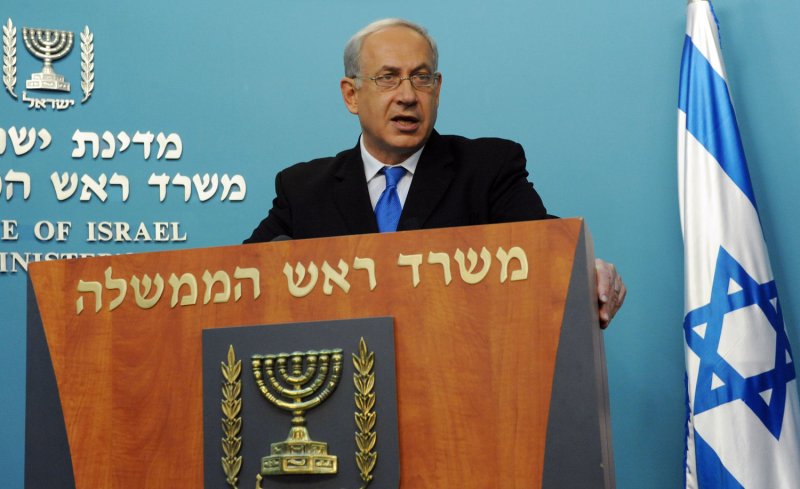1 of 5 | Israeli Prime Minister Benjamin Netanyahu declares a 10-month freeze on settlement construction in the West Bank at a press conference in his office in Jerusalem, November 25, 2009. UPI/Debbie Hill |
License Photo
JERUSALEM, Nov. 25 (UPI) -- Israeli Cabinet ministers Wednesday approved a 10-month freeze on construction of settlements in the West Bank.
Prime Minister Binyamin Netanyahu said he hoped the move, approved 11-2 by the Security Cabinet, would send the message Israel wants to reach a settlement with Palestinian Arabs, Ynetnews.com reported.
"Under the international circumstances that have been created, this move advances the broader national interests of Israel," Netanyahu said. "It allows us to show the world a simple truth: The Israeli government wants to enter negotiations with the Palestinians, is taking practical steps in order to do so and is very serious in its intentions of promoting peace."
In Washington, George Mitchell, the U.S. envoy to the Middle East, said he hopes the freeze will give Israelis and Palestinians time to work out differences.
"We believe the steps announced by the prime minister are significant and could have substantial impact on the ground," Mitchell said. "For the first time ever, an Israeli government will stop housing approvals and all new construction of housing units and related infrastructure in West Bank settlements ... .
"My personal and fervent wish is that we will, during this process at some point, have a resolution of borders so there will no longer be any question about settlement construction."
But Palestinian leaders said they won't negotiate with Israel until it agrees to halt settlement expansion in the West Bank and East Jerusalem, and Netanyahu's proposal does not cover East Jerusalem.
"The exclusion of Jerusalem is a very, very serious problem for us," Palestinian Prime Minister Salam Fayyad told reporters.















